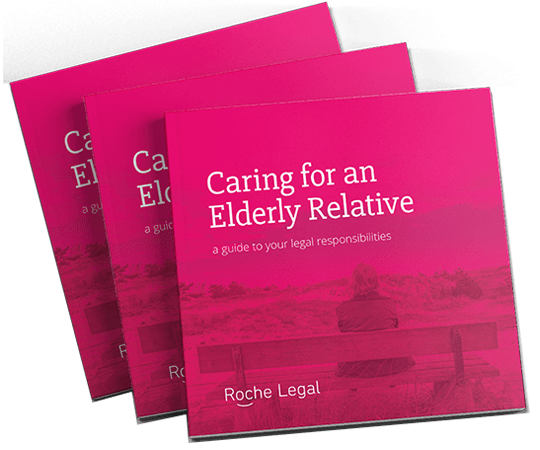All of us are getting older. Whilst this may not seem like the most cheery message to be starting a post with, it leads on to the fact that any one of us could live in a care home in future. With that in mind, it is important for everyone to be aware of the law regarding care home fees and disposing of your assets.
You may be aware that care homes run by local authorities use a means-tested system to determine how much someone should pay towards their own care fees. Generally speaking, the greater the value of that person’s assets, the more they will have to pay towards their own care.
This may give rise to the temptation to pass your assets to your loved ones before they are assessed for care home fees, in order to reduce the amount they have to pay.
To do so however may be considered a ‘deliberate deprivation of assets’ and a legal framework exists to prevent you from avoiding care home fees in this way. It is important to be aware of what this framework covers when planning for the future.
What is included in the term ‘assets’?
When talking about the deliberate deprivation of assets, the term ‘assets’ includes:
- Capital assets – such as lump sums of cash, savings, shares, land or property. Personal possessions (cars, jewellery etc.) are not taken into account unless they were bought to deliberately reduce capital. Buying a car with your savings before the assessment for care fees could be considered a deliberate deprivation, for example.
- Income assets –such as wages or pension income.
What could constitute a deprivation?
This can cover a wide range of transactions but the essential element of deprivation is giving up ownership of an asset or reducing the value of an asset that you own.
Examples given in the Government’s statutory guidance include:
- making a lump-sum payment to someone, such as a gift
- selling or giving away rights to income
- incurring substantial expenditure out of character with previous spending
- transferring a property to someone else
- putting assets into a trust that cannot be revoked
- converting assets into another form that would be disregarded under the financial assessment, such as personal possessions
- selling assets for significantly less than their real value
- reducing assets by living extravagantly, for example gambling
Obviously there is nothing wrong with these transactions or disposals in themselves (although opinions on the last example may vary!); it is only when they have been ‘deliberately’ disposed of to reduce the amount of care fees payable that the law will act.
How is a deliberate deprivation of assets proved?
When making a financial assessment, the local authority will look back over previous transactions or disposals you have made to determine whether any deliberate deprivation of assets has occurred.
In order to establish a deliberate deprivation, the local authority must prove:
- that the reason for, or a significant factor in, disposing of the asset was reducing the amount of care fees to be paid; and
- that, at the time of the disposal, you knew or could reasonably have expected that you would need care and support in a care home.
The local authority will consider all relevant facts surrounding a disposal and state the basis of any decision they come to. Given the broad scope of this approach, it can be difficult to predict how certain disposals might be decided upon by a local authority. Even so, the above requirements must be proved by the local authority.
It should also be noted that it is up to you to prove that you no longer own a certain asset. This can be accomplished by documents such as a deed of gift or receipts, for example. If this cannot be proved, then it will be assumed that you still own the asset and it will be taken into consideration for the amount of care fees payable.

Download our handy guide
Everything you need to know about the legal and financial responsibilities of caring for a loved one who is no longer able to look after themselves.
What can a Local Authority do if there has been a deliberate deprivation?
If a deliberate deprivation is found, a local authority can proceed as though you still own the asset in question and include it in your assessment for care fees. This could easily lead to financial difficulties as disposing of a sizeable asset could mean being charged much higher fees, even though you no longer have the financial security of the asset itself.
Alternatively, if an asset was disposed of to a third party, like a family member for example, a local authority can recover fees from them instead. The amount they would look to recover would be the difference between the care fees charged and the amount which would have been charged had you still owned the asset in question. This therefore results in a financial burden being placed upon someone you may well have wanted to keep free from such liabilities.
What can I do?
Local authorities have a duty to come to their decisions reasonably and to explain the basis for their conclusions. If you disagree with a decision, you have a right to appeal it.
However, it is much better if situations like this can be avoided before they even arise. If you are considering transferring, gifting or otherwise disposing of a significant asset, it is always recommended to consult a solicitor on the possible implications of doing so.
Need further help?
If you would like advice on anything raised in this article, or to discuss matters in more detail, please do not hesitate to contact us.


